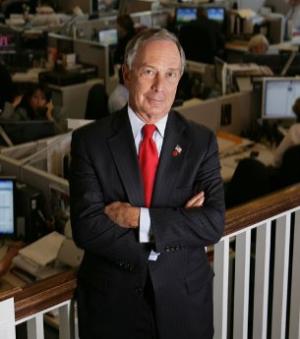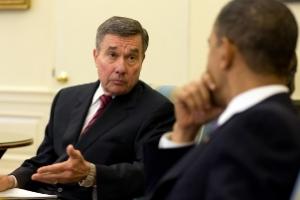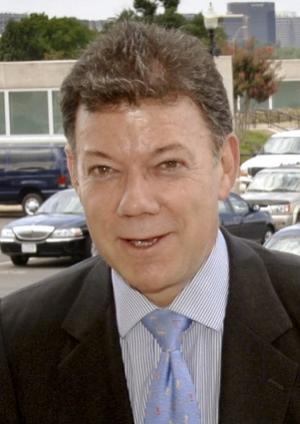New York City shamefully retains its title as the nation's small-time pot bust capital -- and this in a state that decriminalized pot in the 1970s!
The Obama administration has submitted its 2012 federal drug control budget proposal. There's not much new there, and little evidence the administration is putting its money where its mouth is.
Ding, dong, the bill is dead! Canada's Conservative government has been blocked once again in its effort to pass a bill creating mandatory minimum sentences for drug offenses.
DrugWarFacts.org is an in-depth compilation of key facts, stats and quotes on the full range of drug policy issues, excerpted from expert publications. This is the final installment in a six-week serious of info items excerpted from the web site.
Reactionaries won a victory in Helena Thursday, but medical marijuana is far from done for Montana.
A 25-year-old Colorado man has been shot and killed by Aurora Police undercover officers. He was carrying two guns, but it's not clear if he fired or brandished them.
Roger Goodman has done wonders in Washington state. Now, the drug reforming politician wants to go to Washington, DC.
Cops can't find their missing dope in Georgia and Massachusetts, another jail guard goes down, a North Carolina narc pays for getting greedy, and so does a South Carolina magistrate.
It's silly season in Peruvian presidential politics: First, a candidate gets attacked for saying he wants to decriminalize when Peru already has decriminalization, then it's a demand for candidate drug tests.
Colombian President Santos has signaled a willingness to put drug legalization on the table. The Colombian courts may do part of the job for him.
Events and quotes of note from this week's drug policy events of years past.
The New York City Police Department arrested nearly 140 people a day for low-level marijuana possession offenses in 2010, according to recently released figures from the New York Division of Criminal Justice. Arrests totaled 50,383 last year, accounting for more than 6% of all small-time pot busts nationwide.

NYPD's highest law enforcement priority? (image via Wikimedia)
While for the past 20 years, New York City has had high marijuana possession arrest rates, last year was the sixth year in a row that the numbers increased. Last year's arrest totals marked a 69% increase over the 29,752 pot possession arrests in 2005. Since Mayor Michael Bloomberg took office in 2002, more than 350,000 people have been arrested for misdemeanor pot possession in the Big Apple.
The dramatic increase in arrests comes even as marijuana usage rates have declined from the 1980 peak, according to US government data. The arrests suggest that the NYPD has quietly made small-time pot busts its top law enforcement priority.
Although the
Drug Policy Alliance (DPA) put out a
press release with the numbers a week ago, and the story received some play in New York City media, neither Mayor Bloomberg nor the NYPD have deigned to comment.
"New York has made more marijuana arrests under Bloomberg than any mayor in New York City history," said Dr. Harry Levine, a sociology professor at Queens College and a leading scholar of marijuana arrest patterns. "Bloomberg's police have arrested more people for marijuana than Mayors Koch, Dinkins, and Giuliani combined. These arrests cost tens of millions of dollars every year, and introduce tens of thousands of young people into our broken criminal justice system."
The high marijuana possession arrest numbers are particularly shocking because New York state decriminalized marijuana possession back in the 1977. What typically happens is that someone is stopped by the NYPD -- they stopped 575,000 people in 2009 and frisked more than 325,000 of them -- and the police demand that they empty their pockets. When they comply, and a bag of weed emerges, they are then charged not with simple marijuana possession, which is a violation under state law, but with possession "in public view," which is a misdemeanor.
In a stop and frisk, police are allowed to pat down a person to determine whether they are carrying a weapon, but they are not allowed to search inside pockets or bags without probable cause. By complying with a police officer's command to "empty your pockets," the subject is effectively consenting to a search. The better course of action is to say, "Officer, I'm sorry, but I do not consent to any searches." Then, if the officer does search without consent, he could only charge the subject with the violation -- not the misdemeanor "in public view" possession -- and such a charge could be challenged in court.
"Police will intimidate people to get them to take the marijuana out of their pockets, then, once it's in public view, it's an arrestable offense," said the New York native Noah Mamber, of the
Marijuana Policy Project. "It's not fair."
Although these offenders are typically sentenced only to a fine, the city gets its pound of flesh first. People busted for pot possession are handcuffed, taken to a police station, booked, and held in jail for 24 hours or more before being arraigned.
The NYPD's "stop and frisk and bust" policy appears to be aimed disproportionately at the city's minority residents and its youth. A whopping 86% of those arrested were black or Latino, even though research consistently shows that young whites use at a higher rate, and 70% of those arrested were under the age of 30.

Mayor Bloomberg could act to stop these busts.
"The NYPD and Mayor Bloomberg are waging a war on young Blacks and Latinos in New York," said Kyung Ji Rhee, director of the
Institute for Juvenile Justice Reforms and Alternatives (IJJRA). "These 50,000 arrests for small amounts of marijuana can have devastating consequences for New Yorkers and their families, including: permanent criminal records, loss of financial aid, possible loss of child custody, loss of public housing and a host of other collateral damage. It's not a coincidence that the neighborhoods with high marijuana arrests are the same neighborhoods with high stop-and-frisks and high juvenile arrests."
"The NYPD's marijuana enforcement practices are racially biased, unjust, and costly," said Gabriel Sayegh, DPA's New York state director. "The mayor can end these arrests immediately by simply ordering Police Commissioner Ray Kelly and the NYPD to follow the legislative intent of the 1977 decriminalization law. What the Legislature found in 1977 holds true today: Arrests for small amounts of marijuana are inappropriate and wasteful."
"There is no sane reason New York City should have a higher per capita marijuana possession arrest rate than South Carolina or Georgia or Oklahoma," said Allen St. Pierre, executive director of the
National Organization for the Reform of Marijuana Laws. (NORML). "The really vexing part is that the numbers have gone up when they should be going down and that they racial disparity numbers are still at about nine to one. This really seems to belie New York City otherwise progressive attitudes on social issues. Ironically, it's safer to be a cannabis consumer in Buffalo or Schenectady than in Greenwich Village, because police in those cities respect the intent of the law."
The policy is really "a left-handed jobs program for New York City police," St. Pierre continued. "Police in the city can't negotiate increased wages and salaries, but they seem to have an agreement with the mayor's office that they can achieve pay increases by arresting cannabis consumers and then getting overtime. Harry Levine calls it 'dollars for collars.'"
"This is nothing surprising," sighed Morgan Fox, MPP director of communications. "New York City has been an epicenter of marijuana arrests for years, and the racial disparities are no surprise either.
New York City needs to change its low-down ways, said Fox. "They either need to amend the law so it is completely and truly decriminalized, or they could just tax and regulate it similar to alcohol," he argued.
DPA and the IJJRA are working on it on a couple of different levels. The two groups have launched a training program called "Know Your Rights, Build Your Future," which will hold training sessions across the city to educate New Yorkers about their rights and the law. They are also calling on the city council to hold hearings to learn more about the human and fiscal costs of the arrests and to demand greater accountability from the NYPD.
In the mean time, New York City pot smokers need to watch out -- especially if they're young, non-white, or in the outer boroughs. And they would be well-served to educate themselves about what their rights are and how to effectively exercise them.
back to top
The Obama administration released its a href="http://www.whitehousedrugpolicy.gov/policy/12budget/fy12Highlight.pdf">proposed 2012 National Drug Control Budget Monday and, despite President Obama's statement just over two weeks ago that the federal government needed to "shift resources" to have a smarter, more effective federal drug policy emphasizing public health approaches, there is little sign of any resource shifting.

Drug War Autopilot and Co-Autopilot: ONDCP Director Gil Kerlikowske with President Obama
Although budget documents said the administration seeks "a balanced approach" of prevention, treatment, and domestic and international law enforcement, law enforcement continues to get the lion's share of federal drug dollars. Of the more than $26 billion allocated for federal drug control efforts, nearly 60% would go to "supply reduction" (read: domestic and international drug law enforcement and military interdiction) and only 40% would go to treatment and prevention.
And in a time when the clamor for deficit reductions and budget cuts grows louder by the day, the Obama administration drug budget actually increases by 1.3% over 2010. That means it could be in for a rough ride when congressional appropriations committees get their hands on it, although no Republican leaders have yet commented on it.
[Editor's Note: All year-to-year comparisons are to Fiscal Year 2010 because Congress still hasn't passed a FY 2011 budget.]
On the other hand, at least the administration is being honest. Since 2004, the
Office of National Drug Control Policy (ONDCP -- the drug czar's office), which produces the drug budget, under drug czar John Walters had used accounting legerdemain to substantially understate the real costs of federal drug control by not including the drug component in the work of a number of different federal agencies. Using the understated figures, this year's drug budget would have appeared to have been only $15.3 billion instead of the more accurate $26.2 billion, with a false appearance of equality between supply-side and demand-side funding.
[Editor's Note: Bush-era drug czar John Walters stated directly, in response to a question I asked at an event, that they omitted budget items that included drug control but were not 100% about drug control -- claiming that made the numbers "more accurate," but not explaining how that made sense in any way. -DB]
"At least they finally got around to fixing the accounting problem," said Bill Piper, national affairs director for the
Drug Policy Alliance."It took them five years after Congress told them to fix it, but at least they are showing the true cost of things, like incarceration."
But neither Piper nor representatives of other drug reform groups had much else nice to say about the budget. "It's very much like last year's budget, with most money going to ineffective supply side programs and not enough going to treatment," Piper said. "You have the president and the drug czar talking about treating drug abuse as a public health issue just weeks ago, but their budget continues to treat it as a law enforcement and military issue."
"I don't understand how the president can tell us with a straight face that he wants to treat drugs as a health issue but then turn around just a few weeks later and put out a budget that continues to emphasize punishment and interdiction," said Neill Franklin, executive director of
Law Enforcement Against Prohibition and a former narcotics officer in Baltimore. "The president needs to put his money where his mouth is. Right now it looks like he's simply all talk and no game."
"I see this similarly to Obama's approach on needle exchange and crack sentencing -- the president supported those reforms verbally, but did nothing else to help them at first, even when he had the opportunity," said David Borden, executive director of
StoptheDrugWar.org, publisher of this newsletter. "But when Congress was ready to take them on, the administration provided enough support to get them through. Obama has also supported the idea of shifting the drug budget's priorities, but again has done nothing whatsoever to make it happen. Maybe what he wants is for Congress to do the heavy lifting on this as well. If so, our movement's task is to propose a politically viable new version of the budget that does change the priorities, to build support for it in Congress, and then look for the administration to get on board."
"We're definitely going to be focused on cutting funding to the drug war during the congressional appropriations process," said Piper. "We're already meeting with both Republicans and Democrats to increase support for cutting funding to the Byrne grants, the media campaign, and other ineffective drug war programs. I don't think there are any sacred cows now, and our goal is to get the drug war on the chopping block along with everything else."
While there are individual programs that saw cuts in both the treatment and prevention side and the law enforcement side, only in the realm of international anti-drug assistance was there an overall decrease in spending. Although the budget funds foreign assistance at $2.1 billion, that is $457 million less than the 2010 budget, a decrease of 17%. The decrease results from the winding down of Plan Colombia funding, a shift from expensive technologies for Mexico to more programmatic aid, and the re-jiggering of some of the Afghanistan anti-drug spending to be counted as "rule of law" spending.
Proposed spending on interdiction is set at $3.9 billion, an increase of $243 million over 2010 levels. The departments of Defense and Homeland Security account for the bulk of that spending, which includes an increase of $210 million for border security and port of entry facilitation on the US-Mexico border.
But international anti-drug aid and interdiction spending are dwarfed by domestic drug law enforcement, which would gobble up $9.5 billion under the Obama drug budget, an increase of $315 million over 2010 levels, or 3.4%. Unsurprisingly, the single largest domestic law enforcement expenditure is $3.46 billion to incarcerate federal drug war prisoners.
[Editor's Note: In the budget, the authors refer to high federal corrections costs because of the high number of drug war prisoners -- they make up well over half the more than 200,000 federal prisoners -- as "a consequence of drug abuse," when those costs are more than anything a consequence of public policy decisions made over decades.]
The Office of Justice Grants program, which includes the Byrne Justice Assistance Grants used to fund anti-drug multi-jurisdiction law enforcement task forces, would be slashed substantially, from $3.52 billion in 2010 to $2.96 billion in 2012, but on the other hand, the
Justice Department 2012 budget contains $600 million to hire and retain 4,500 new police officers.
"It's encouraging that they cut funding for the Byrne grants," said Piper, "but they're increasing funding for the COPS program. The money is still going to law enforcement, but cutting those grants is a step in the right direction."
There are a few law enforcement side losers in addition to the Byrne grants. The DEA budget is down slightly, from $2.05 billion in 2010 to $2.01 billion in 2012, but that reflects supplemental spending for the southwest border that was included in 2010. The High Intensity Drug Trafficking Area (HIDTA) program, which has evolved into a prime example of pork, saw its funding slashed to $200 million, down from $239 million.
And while overall treatment and prevention funding was up slightly, by 1% and 8% respectively, those increases are relatively slight, and there are some losers there, too. The Substance Abuse and Mental Health Services Administration (SAMHSA) Prevention grant program would decline from $565 million in 2010 to $550 million in 2012, Drug Free Communities funding would decline from $95 million to $89 million, and substance abuse treatment Medicaid grants to the states would decline from $3.78 billion to $3.57 billion.
On the plus side, spending for the Successful, Safe, and Healthy Students grant program would increase from $177 million to $267 million, Medicare treatment spending would increase by about 10% to $1.463 billion, Substance Abuse Treatment Block Grant funding would increase fractionally, and reentry funding under the Second Chance Act would increase from $30 million to $50 million.
The much criticized ONDCP youth media campaign would remain at $45 million, and the mostly praised drug court program would also remain unchanged, at $57 million.
All in all, despite slight changes in emphasis, the 2012 federal drug control budget is much of a muchness with previous drug budgets, despite the Obama administration's lip service about changing priorities and embracing the public health paradigm.
"Everyone wants to cut federal spending somehow," said Piper. "It seems that cutting the drug war would be an easy way to do that without cutting funds to the poor, to education, and other desirable social programs. Obama has said how sad he was to have to cut programs he likes, but he probably could have saved those programs by cutting funding for the drug war."
back to top
The government of Canadian Prime Minister Stephen Harper has been thwarted once again in its effort to pass a bill that would impose mandatory minimum sentences for drug offenses. The opposition Liberals announced February 10 that they will not support the legislation.

Tough luck, Mr. Harper
Because Harper's Conservative government is a minority government, it needs the support of opposition parties in the House of Commons to pass the crime bill,
S-10. But the other opposition parties, the New Democrats and the Bloc Quebecois, have been staunch opponents of the measure. With the Liberals announcing they will vote against S-10, Harper's government doesn't have the votes to pass it.
The bill would have enacted mandatory minimum sentences for growing as few as six pot plants. The Liberals took their stand against it after Conservatives refused to say how much it would cost.
"This bill isn't tough on crime, it's dumb on crime," said Liberal Leader Michael
Ignatieff. "We're all in favor of cracking down on serious criminals, but this bill doesn't distinguish between massive grow-ops and a first-time offender with a small amount. What's more, the Conservatives won't tell us what the fiscal implications of this bill are. How many billions will it cost? How many mega-prisons will have to be built? For these reasons, we just can't support it," he said.
The bill had already passed the Senate, where the Conservatives hold a majority, but opposition had been growing as it headed for the House of Commons. Earlier this week, more than 550 health professionals signed an
open letter opposing the bill.
"The scientific evidence shows that mandatory minimum sentences will not cut violent crime, reduce drug use or improve public safety," said Dr. Thomas Kerr,
co?director of the Urban Health Research Initiative, one of the groups behind the letter. "To turn the tide on organized crime and drug use in Canada we need illicit drug policies based on the best available scientific evidence. Unfortunately, Bill
S?10 turns its back on
evidence?based research in favor of misguided political appeal."
Canadian anti-prohibitionists welcomed the move by the Liberals. "We are extremely pleased that the Liberal Party has made its decision on the basis of evidence," said Kirk
Tousaw, executive director of the Vancouver-based
Beyond Prohibition Foundation. "This punishment plan would not have reduced crime, nor would it have made Canadian safer from the influence of gangs. In fact, the foundation has long argued that the evidence is clear that ramping up a war on drugs has the perverse effect of making drugs more available, cheaper and more potent while simultaneously increasing the profitability and violent tendencies of organized criminals. Today the Liberal Party of Canada decided to be smart on crime."
This year's effort to pass the crime bill was the third by the Harper government. Perhaps now the Tories will give it a rest.
back to top
DrugWarFacts.org, a publication of Common Sense for Drug Policy (CSDP), is an in-depth compilation of key facts, stats and quotes on the full range of drug policy issues, excerpted from expert publications on the subjects. The Chronicle is running a series of info items from DrugWarFacts.org, and we encourage you to check it out.
Did you know that nearly 1.7 million people were arrested in the 2009 in the United States for drug offenses, more than 750,000 for marijuana possession?
"Although the intent of a 'War on Drugs' may have been to target drug smugglers and 'King Pins,' over half (51.6%) of the 1,663,582 total 2009 arrests for drug abuse violations were for marijuana -- a calculated total of 858,408. Of those, an estimated 758,593 people (45.6%) were arrested for marijuana possession alone. By contrast in 2000, a total of 734,497 Americans were arrested for marijuana offenses, of which 646,042 were for possession alone."
Source: "Crime in the United States 2009," FBI Uniform Crime Report (Washington, DC: US Dept. of Justice, September 2010), Table 29 (http://www.fbi.gov/ucr/cius2009/data/table_29.html), and "Arrest Table: Arrests for Drug Abuse Violations," (Washington, DC: US Dept. of Justice, September 2010), http://www.fbi.gov/ucr/cius2008/arrests/index.html), via the DrugWarFacts.org Crime chapter.
Sign up for the DWF new facts RSS feed, or read last week's DWF Drug War Chronicle blurb here.
Common Sense for Drug Policy is a nonprofit 501(c)(3) organization dedicated to reforming drug policy and expanding harm reduction. CSDP disseminates factual information and comments on existing laws, policies and practices.

back to top
The Republican-dominated Montana House voted last Thursday to overturn the will of the voters and repeal the medical marijuana law created by a 2004 ballot initiative. The measure now moves to the state Senate.

No medical marijuana in Montana? Not quite yet. (Image via Wikimedia)
House Speaker Mike Milburn (R-Cascade), who sponsored the bill,
HB 161, said medical marijuana had gone too far in the state and what now exists is beyond what the voters approved. He said the state's medical marijuana law had attracted a criminal element.
"It is starting to undermine the entire fabric of our state," Milburn said during floor debate. "It is time to take back our state and our culture and do what is best for Montana. This bill says shut down everything -- it's gone way too far."
House Democrats argued against a full repeal of the law and blamed the legislature's failure to act to regulate the industry for the explosion in medical marijuana use in the state.
"We had many years to regulate what 62% of voters approved, and did nothing," said Rep. Pat Noonan (D-Butte).
"We tried prohibition once and it didn't work," said Rep. Diane Sands (D-Missoula). "It is not going away," she said of medical marijuana. "It does have a legitimate medical use."
Although repeal passed easily in the House, it faces much tougher prospects in the Senate. While there is general agreement that Montana medical marijuana needs legislative attention, there are several bills that seek to tax or regulate medical marijuana, not recriminalize it.
back to top
Editor's Note: This year, Drug War Chronicle is going to try to track every death directly attributable to drug law enforcement during the year. We can use your help. If you come across a news account of a killing related to drug law enforcement, please send us an email at [email protected].]
A metro Denver man became
this year's seventh US drug war fatality when he was shot and killed by a plain clothes Aurora Police narcotics officer last Thursday evening. He was identified as Richard Arreola, 25, of Thornton.
According to police, undercover narcs were conducting surveillance on Arreola, whom they said was the subject of a drug investigation. Arreola arrived at a house on Macon Street, and at some point, approached one of the officers while carrying a "long gun" and a revolver. The officer radioed in that he was being approached by Arreola, then reported "shots fired" and that Arreola had been shot.
"He was pronounced dead on scene," said Aurora Police spokeswoman Cassidee Carlson. "The officer was not injured."
Carlson said Arreola had been under investigation for illegal drug sales for a couple of weeks. She said it was unclear at this point why Arreola had approached the officer or whether he had fired any shots at the officer.
Arreola's brother Ruben Montano told the Denver Post the next day he had no idea why police were investigating him and that Arreola had gone to the Macon Street address where his mother lived to pick up his three-year-old daughter. He said he saw his brother leave the apartment and then heard seven gun shots.
"I went to go find him," Montano said. "Then I saw my brother shot for no reason."
Arreola was the owner of Neviah Wireless in Aurora. His criminal history consisted of a handful of Denver traffic offenses, a misdemeanor pot possession charge, and a gambling offense for which he served 18 days in jail and a year of probation in Gilpin County in 2007.
The police shooter has not been identified. He has been placed on administrative leave while the incident is investigated.
back to top
Washington state Rep. Roger Goodman (D) has announced that he is seeking the Democratic Party nomination to challenge US Rep. Dave Reichert (R), a two-term congressman who represents Washington's 8th congressional district. Although he doesn't emphasize it heavily on his campaign web pages, Goodman is a champion of drug policy reform.

Roger Goodman
His reform record is long and impressive. An attorney, Goodman served as the executive director of the Washington State Sentencing Guidelines Commission in the late 1990s and was elected to the National Association of Sentencing Commissions. While with the state commission, he published major reports on prison capacity and sentencing policy, helped to increase availability of drug treatment in prisons, and shepherded 14 other sentencing-related bills through the legislature.
Goodman followed up the sentencing stint by leading the King County Bar Association's Drug Policy Project, which coordinated a groundbreaking initiative to take a critical look at drug laws and promote cheaper, more effective, and more humane drug policies. In doing so, he helped create an impressive coalition of over 20 professional and civic organizations that has spurred the legislature to reduce imprisonment of drug offenders and shift funding into drug treatment.
A state representative since 2006, Goodman is cosponsor of a marijuana legalization bill currently before the legislature, and is supporting a pending medical marijuana dispensary bill. Last session, he helped push through a 911 Good Samaritan drug overdose prevention bill, and is seeking similar legislation to help prevent alcohol overdoses. He continues to work for sentencing reform in the legislature as well.
While Goodman is aiming at the 8
th congressional district, that could change because of redistricting. He told the Chronicle he could end up in one of three different districts, but said he was confident he could win in any of them.
(This article was published by StoptheDrugWar.org's lobbying arm, the Drug Reform Coordination Network, which also shares the cost of maintaining this web site. DRCNet Foundation takes no positions on candidates for public office, in compliance with section 501(c)(3) of the Internal Revenue Code, and does not pay for reporting that could be interpreted or misinterpreted as doing so.)back to top
Cops can't find their missing dope in Georgia and Massachusetts, another jail guard goes down, a North Carolina narc pays for getting greedy, and so does a South Carolina magistrate. Let's get to it:
In Boston,
a Boston Police investigation into hundreds of bags of missing drug evidence has hit a dead end. Police discovered in 2008 that the drugs had been stolen from a department warehouse in Hyde Park, but have failed to turn up any leads or suspects. Drugs seized as evidence in 256 cases, including heroin, cocaine, marijuana, and lots of prescription opiates, are all missing. An audit criticized lax security and a highly disorganized record-keeping system at the warehouse. Ten officers working at the warehouse were transferred after the audit, but because of lack of surveillance at the warehouse and the police code of silence, investigators have been unable to charge any of them. Reforms have been instituted, authorities said.
In Lawrenceville, Georgia,
the Gwinnett County Police Department still can't find two kilos of cocaine missing from an evidence safe. Three kilos went missing last year, and only one could be accounted for after the Georgia Bureau of Investigation looked into the case. Also missing are several pounds of pot, various pills, and even fake drugs used in investigations. Procedures were so lax that investigators were unable to arrest anyone and no member of the department faces discipline. The department announced Monday it had undertaken reforms.
In Brentwood, New Hampshire,
a Rockingham County jail guard was indicted last Friday on charges he planned to smuggle Oxycontin into the jail for a prisoner. Guard Sunni George, 33, faces one count each of attempted possession of a controlled drug with intent to sell, attempted delivery of prohibited articles, and conspiracy to deliver prohibited articles. The indictment alleges that late last month, George bought Oxycontin in a shopping center parking lot with the intent of providing it to an unnamed prisoner.
In Durham, North Carolina,
a former sheriff's narcotics supervisor pleaded guilty February 10 to 25 counts of embezzling money from the Durham County Sheriff's Office. Derek O'Mary was in charge of disbursing money for drug buys and other criminal investigations, but admitted to illegally disbursing $97,976 to himself. O'Mary went down after his own narcs narced him out for mismanaging money. He's looking at 4 1/2 years in prison after sentencing later this year.
In Spartanburg, South Carolina,
a former Spartanburg County magistrate pleaded guilty February 9 in a case in which the former clerk of court stole drugs from the county courthouse evidence locker. Former magistrate John Poole Jr. pleaded guilty to conspiracy to possess with intent to distribute a quantity of a substance containing a detectable amount of methamphetamine and cocaine. He, the former clerk of court, and a third party conspired to sell the stolen drugs to a Florida man. Poole netted $715 from an initial drug sale before the scheme was uncovered. He's now looking at up to 20 years in prison.
back to top
Drug policy and drug use have become issues in Peru's upcoming presidential election, albeit in a strange and sometimes silly way. Former President Alejandro Toledo, the front-runner in a crowded field of candidates, called late last month for the decriminalization of drug use, sparking fevered denunciations from his opponents, and that was just the beginning.

Peruvian presidential contenders Luis Castaneda (l) and Alejandro Toledo (r) in happier times. (image via Wikimedia)
In a campaign where most of the major candidates are on the same page in terms of economic policy, social issues have been a way for them to differentiate themselves from others. Toledo has staked out a position as the sole social progressive, also supporting legalized abortion and gay rights -- and being attacked for those positions as well.
There's just one problem, both with Toledo's decriminalization suggestion and with his foes' attacks: The possession of small amounts of drug for personal use is
already decriminalized in Peru. One can possess, for example, up to seven grams of marijuana and up to two grams of cocaine without criminal penalty.
"Depenalization is an alternative that must be looked at," Toledo told the
foreign press in a late January speech in Lima. While acknowledging that decriminalization already existed in Peru, he asserted vaguely that he may seek to somehow deepen it if elected.
He also said that police and the judiciary must be reformed to strengthen the fight against Shining Path remnants that have gone into the drug trade. "Otherwise, it will become a narco-state," he said. "It's a serious issue."
Ignoring Toledo's remarks about fighting the drug trade, his four primary opponents opened fire on the decriminalization issue. It was
a barrage of attacks.
"It amazes me that Toledo is offering falsehoods throughout his campaign and proposing things that are not applicable to our society as the legalization of abortion and drugs," said Pedro Pablo Kucyzinski. "I think if you decriminalize the drug trade in a country that is a major drug producer in the world, what we do is go to a pool full of whiskey and drugs in this country," he finished.
"It seems absurd, we are one of the largest producers of drugs in the world and by legalizing it we will lose our youth, it would be really terrible," said Keiko Fujimori, who is vying for second place and a shot at a run-off bid. "Crime rates have doubled in the last 10 years and drugs are is one of the major causes."
She was joined by the other leading contender for second place and a shot at a run-off, Lima Mayor Luis Castaneda. "I oppose the legalization of drugs because it breeds violence and we are going to fight this problem, drugs are evil and a disturbance to society that turns into violence and death."
Radical nationalist Ollanta Humala at least addressed the broader issue of drug production even as he attacked Toledo. "We are against the legalization of drugs," he said. "But we have a proposal for comprehensive fight against them that involves not separating the coca growers from the rest of the country, they are not the first link in the chain of drug trafficking, they are the first victims."
Then things deteriorated. Early this month,
Fujimori challenged the other candidates to take a drug test after submitting to one herself and revealing the results. (She passed.) "I am doing this test so everybody knows I don't do cocaine," she said.
Toledo initially responded by saying that he would submit to a drug test, but hours later said he wouldn't be "part of that game."
His campaign chief, Carlos Bruce, said Toledo had nothing to prove other than to remind voters of his track record. "When we were government, we fought against drug trafficking," Bruce said "Neither Perú Posible nor Toledo were accused of having links with drug trafficking," he added. "Those who want to cut their hair and go to the lab, I salute them."
Toledo did, however, take care to assure voters that he has never consumed drugs, nor smoked cigars, because he never learned how to. Nor is he an alcoholic, he said, despite what his opponents say.
Ollanta Humala had perhaps the most pointed response to the drug test demand. "Instead of a drug test, candidates should submit themselves to a patriotic test to see if they have ever been concerned about defending our national interests, resources and sovereignty."
Humala added that he will not do a drug test because he doesn't want to be part of a "media show."
The first round of elections is April 10. If no candidate wins a majority of the vote, the first- and second-place finishers will compete in a head-to-head run-off.
back to top
In an interview with the magazine Semana published Sunday, Conservative Colombian President Juan Manuel Santos said he was open to decriminalizing drug possession. Drug possession had been decriminalized in Colombia from the early 1990s until 2009, when, after years of effort, then President Alvaro Uribe managed to push through re-criminalization.

Juan Manuel Santos (wikimedia.org)
Decriminalization "is an alternative that we can discuss," he said, but further comments suggested he is open to ending prohibition of production and sales of drugs as well. "I am not opposed to any formula that is effective, and if the world decides to legalize and thinks that that is how we reduce violence and crime, I could go along with that," he added.
Colombia is one of the world's leading coca and cocaine producers. Leftist guerrillas and rightist
paramilitaries have both profited from the trade, as have non-political criminal elements.
"President Santos's cautious but clear support for seriously debating the option of legalization as a solution to prohibition-related violence and crime sends an important message to other presidents and prime ministers," said
Drug Policy Alliance executive director Ethan
Nadelmann in a statement Monday. "Taken together with President Obama's recent acknowledgement that legalization is a legitimate topic for debate, it suggests that the debate is opening up globally in ways that are both unprecedented and essential to meaningful drug policy reform."
Santos also signaled support for Bolivia's efforts to have coca removed from the 1961 Single Convention on Narcotics list of controlled substances. That request is before the United Nations right now and has been challenged by the US and a number of European countries.
"I am open to discussing new alternatives, but we cannot make the change alone," he said. "And we have no alternative to fighting the chain of drug trafficking. We support Bolivia because this is established in the constitution: respect the indigenous peoples and their traditions."
Santos' remarks on decriminalization come as Colombia's Constitutional Court hears a challenge to the 2009
re-criminalization law. The
International Center on Human Rights and Drug Policy last week submitted an
amicus brief to the court arguing that decriminalization is not prohibited by the UN anti-drug conventions or the UN Convention on the Rights of the Child.
back to top
February 23, 1887: The 49th Congress of the United States enacts legislation that provides a misdemeanor fine of between $50 and $500 ($1,100-$11,000 in today's dollars) for any US or Chinese citizen found guilty of violating the ban on opium.
February 21, 1971: The United States joins with other countries in signing the international Convention on Psychotropic Substances, in Vienna, Austria.
February 17, 1997: Legislation to repeal an 18 year-old state law permitting physicians to prescribe marijuana for patients suffering from cancer or glaucoma is voted down by a Virginia Senate committee in a 9-6 vote.
February 20, 1997: CNN reports that a prestigious panel of experts convened by the National Institutes of Health said there is promising evidence that smoking marijuana may ease the suffering of some seriously ill patients.
February 18, 1999: Dr. Frank Fisher, a pain doctor from Northern California, is arrested and charged with five counts of murder. After about six years of legal wrangling and having more charges levied against him, he is determined to be completely innocent.
February 18, 2000: President Clinton signs the "Hillary J. Farias and Samantha Reid Date-Rape Drug Prohibition Act of 2000," categorizing GHB as a Schedule I drug.
February 22, 2000: Due to drug-related violence, the US State Department issues a traveler's advisory warning for Tijuana, Mexico City, and Ciudad Juárez, which are labeled as "dangerous." Juárez Mayor Gustavo Elizondo protests to US Secretary of State Madeleine Albright.
February 21, 2001: The New York Times reports that a recent study released at a World Health Organization meeting found that American teens are more likely to smoke marijuana and use other illicit drugs than their European counterparts. While they are more likely to smoke cigarettes and drink alcohol, only 17 percent of European 10th graders reported marijuana use, compared to 41 percent of American 10th graders. The study is interesting considering the US implements a zero-tolerance approach while many European countries tend to employ harm-reduction strategies and are generally more tolerant.
February 19, 2004: Veterans and medical marijuana activists in San Francisco hold a protest/rally in front of San Francisco's Veterans Administration Outpatient Clinic and ask doctors working for the Veteran's Administration to help provide better access to medical marijuana.
back to top










